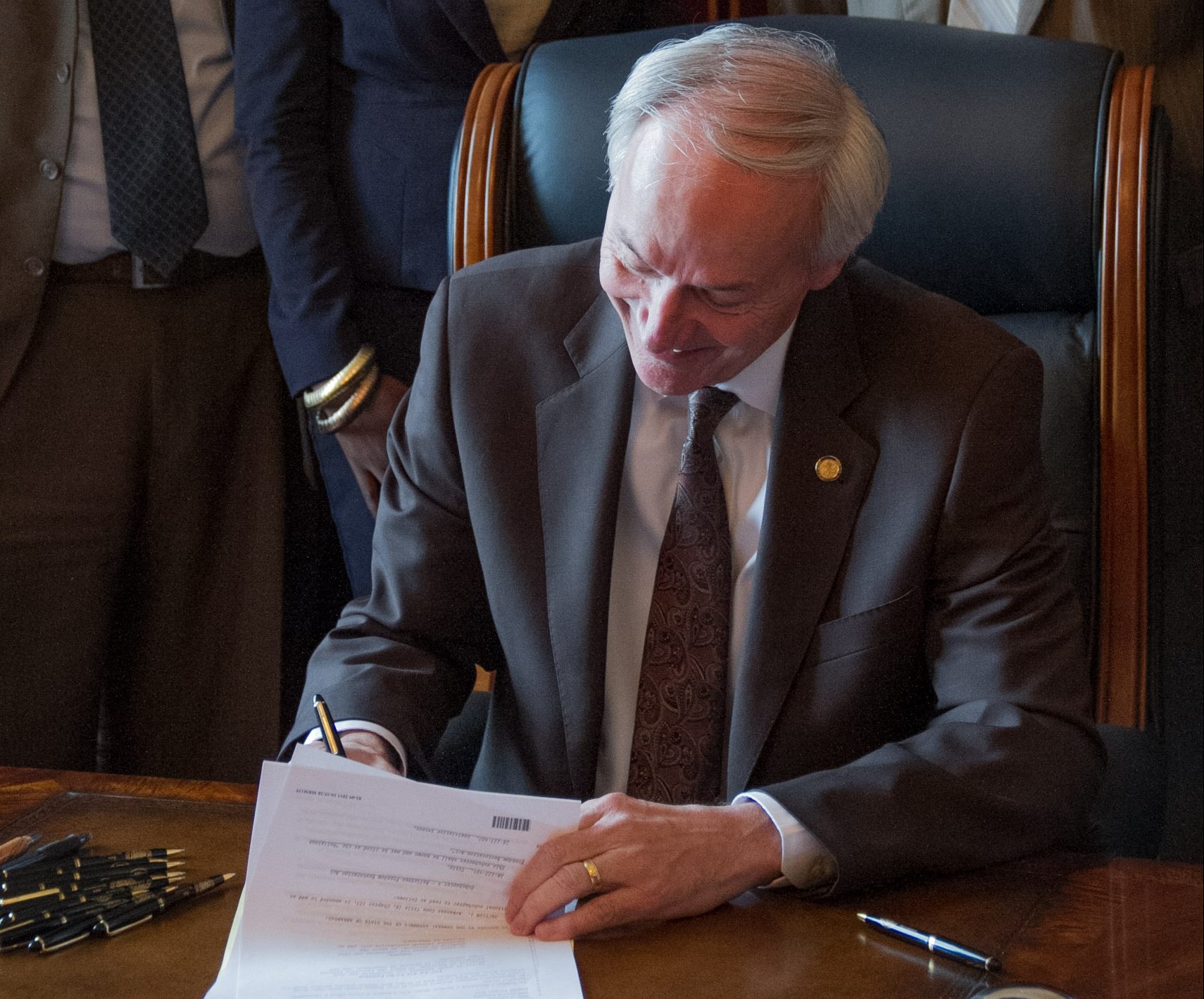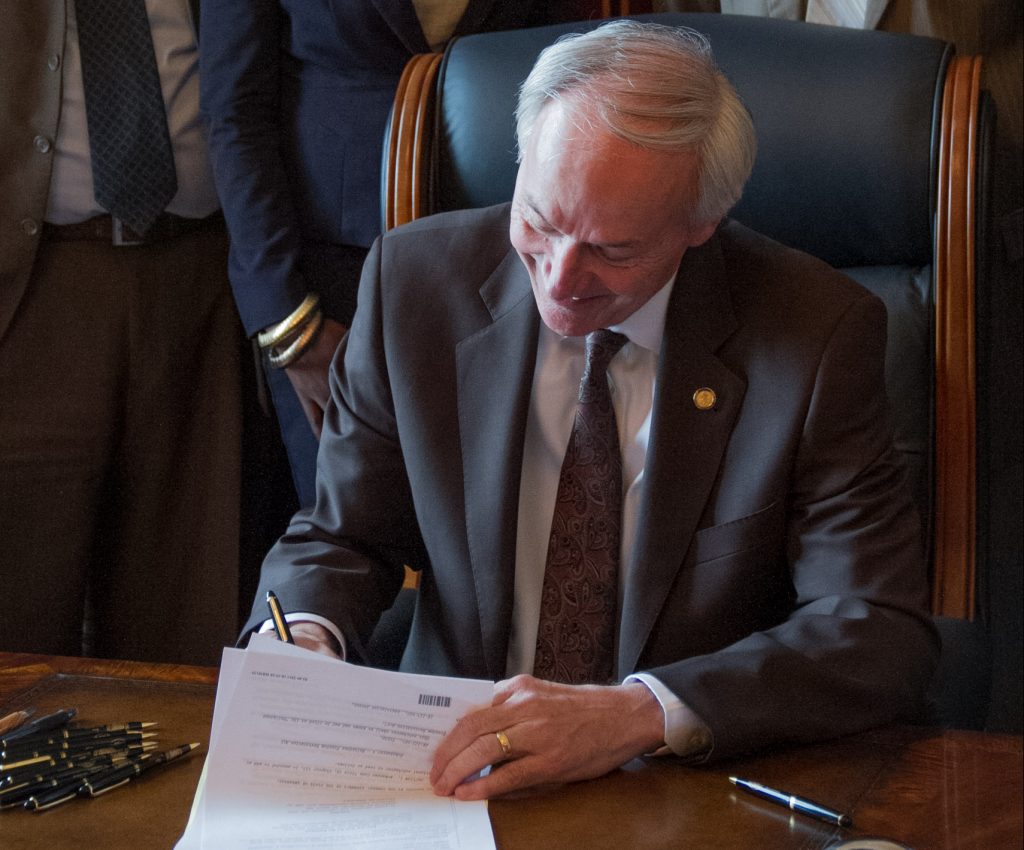Freedom From Religion Foundation Celebrates Defeat of Issue 3 in Arkansas

Following last week’s election, the atheist Freedom From Religion Foundation issued a statement celebrating the defeat of Issue 3, the Arkansas Religious Freedom Amendment, calling the amendment “an attempt to insert religious privilege in the state Constitution.”
The Arkansas Legislature referred Issue 3 to voters last year, but the measure narrowly failed to pass on Election Day.
Ahead of the election, social media fueled a lot of confusion about Issue 3, with some conservatives incorrectly claiming that the measure would make it easier for the government to restrict the free exercise of religion.
Family Council supported Issue 3, because it would have helped restore protections for religious freedom — especially in our courts.
Focus On The Family, Alliance Defending Freedom, Liberty Counsel, American Family Association, Family Policy Alliance, Family Research Council Action, Family Council Action Committee, and the Arkansas Baptist State Convention all endorsed Issue 3.
The ACLU and the Freedom From Religion Foundation opposed the measure.
Below is the Freedom From Religion Foundation’s full statement celebrating the defeat of Issue 3 in Arkansas.
FFRF members help defeat toxic religious liberty Arkansas measure
The Freedom From Religion Foundation applauds a major victory for separation of state and church in Arkansas, where voters wisely rejected an attempt to insert religious privilege in the state Constitution.
Issue 3 on the Arkansas ballot, sponsored by Christian nationalist state Sen. Jason Rapert, would have placed the text of the Religious Freedom Reformation Act (RFRA) into the Arkansas Constitution. This would give churches and religious business owners an exemption to any law they didn’t like for religious reasons, forcing the government to overcome a tall legal hurdle to justify the religious “burden.”
In practice, state RFRAs, and their federal predecessor, have legalized discrimination and caused massive harm. Hobby Lobby notoriously denied its employees reproductive health care insurance because of its wealthy owners’ religious objections to contraception, and RFRA allowed them to do it. Women, LGBTQ individuals — and all secular Arkansans — can breathe a sigh of relief that Issue 3 has failed.
FFRF urged its members to show up and vote against Issue 3, and it’s no surprise that they did; a recent internal survey showed that more than 95 percent of FFRF members are registered to vote. Every one of those votes counted, as Issue 3 was rejected very narrowly, by only 7,500 votes.
This is part of a national trend, with a growing portion of the American voting population becoming less religious and more civically engaged. Elected officials would be well advised to heed this trend and listen to their secular constituents. FFRF recently launched a campaign to help educate the public about this quickly emerging voting bloc.
The defeat of Issue 3 in Arkansas is a testament to its growing power.
It’s important to point out that the Freedom From Religion Foundation inappropriately resorts to attacking people’s character in this statement, and the group is incorrect in its assessment of the federal Hobby Lobby ruling from 2014 concerning religious freedom laws.
That court decision centered on whether or not the federal government can require company insurance plans to include procedures and services that the company’s owners find morally objectionable.
In Hobby Lobby’s case, the U.S. Supreme Court ruled that the federal Religious Freedom Restoration Act prevents the federal government from infringing religious liberty that way.
Issue 3 would have provided similar protections for Arkansans under the State Constitution.
The Freedom From Religion Foundation has a history of opposing religious liberty in Arkansas.
Besides fighting against Issue 3, the group has opposed public prayer at meetings and gatherings in Arkansas.
The Freedom From Religion Foundation has filed a lawsuit to have a monument of the Ten Commandments removed from the Arkansas Capitol grounds.
In 2017 the group demanded that Governor Hutchinson stop sharing Bible verses on his Facebook page.
In 2016 the foundation went after Washington County election officials for using churches as polling places.
The Freedom From Religion Foundation has complained about the fact that that Arkansas’ public school students can study the Bible academically — even though it is one of the oldest texts in existence and has had a profound influence on human history.
Many voters don’t realize how tenuous our protections for religious freedom have become. That likely is part of the reason Issue 3 narrowly failed last week.
Family Council remains committed to protecting religious liberty in Arkansas. We hope to do exactly that in the coming year.
Articles appearing on this website are written with the aid of Family Council’s researchers and writers.





